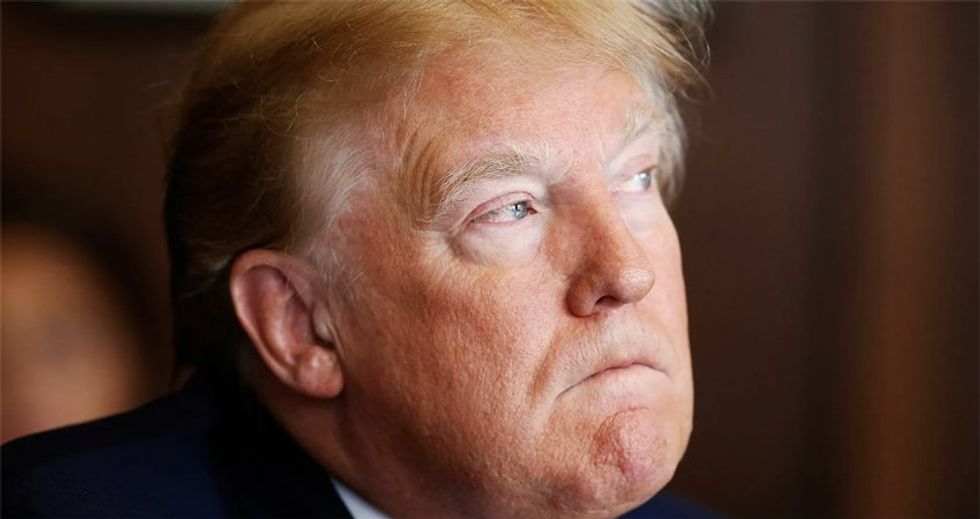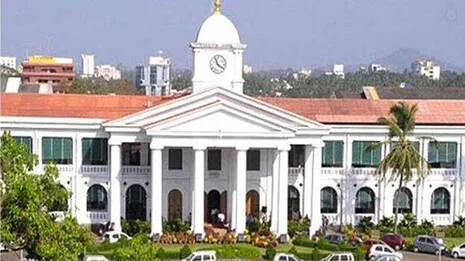
The recent false alarm about Chief Mike Adenuga Jr.’s death was so influential that legendary musician Ebenezer Obey felt compelled to release a song debunking it. Back in the 1980s, Obey’s hit song Ketekete narrated the story of a horse burdened by its riders to the extent that it was felt that the weight might kill the horse.
It is unsurprising that the yoruba phrase ‘efe pa ketekete’ (translated – you want to kill the horse) became a metaphor that resonated deeply and became an instant classic across Yorubaland and beyond. This time, the focus of Obey’s song was to refute the fake news surrounding Dr. Mike Adenuga Jr.

, a beloved business magnate, celebrated philanthropist, and Nigeria’s second-richest man based on Forbes list of billionaires. Before Obey stepped in with his musical clarification, Dele Momodu, a media entrepreneur and afficianado of Adenuga phenomenon, had already addressed the false reports, confirming that the business tycoon was very much alive. Born on April 29, 1953, Chief Dr.
Mike Adenuga, founder of Globacom, is 71 years old. Though not a socialite, he recently hosted traditional and Christian wedding ceremonies for his daughter Afolashade first at his lavish Banana lsland residence and later on October 26 at Se-Se’s Groove on Alfred Rewane Road, Ikoyi, Lagos. It was a rare occasion for Adenuga, who seldom attends or hosts events outside his private banquet hall at home.
In my personal assesment, it is Adenuga’s preference for privacy that likely made him a target for the death hoax. Public figures like Femi Otedola, who are highly visible both on social media and in real-life social gatherings, are less likely to fall victim to such misinformation because he would have been seen in multiple locations by lots of people before the false news purveyors finish typing the message or before the ink from the pen used in writing the falsehood dries up. Before diving into Adenuga’s achievements as a businessman, philanthropist, and family man, it is imperative to explore the broader issue of misinformation and disinformation which have become a menace to society in an epidemic proportion.
Understanding its drivers, particularly in the era of social media and Artificial Intelligence, is crucial to tackling this growing malaise. The phenomenon of being falsely declared dead is not new; it is universal and dates back centuries. One notable example is Mark Twain, who in 1897 humorously dismissed a false death report by stating, “The reports of my death are greatly exaggerated.
” Other examples include the “Paul is Dead” rumor about Beatles bassist Paul McCartney in 1969, Mick Jagger being falsely declared dead the same year, and Harrison Ford in 2015, when a fabricated report claimed he had died in a plane crash. Similarly, in 2014, actor Zach Braff became the target of a hoax, and in 2012, Morgan Freeman was falsely declared dead, prompting his representatives to issue a statement affirming his well-being. In Adenuga’s case, Dele Momodu quickly debunked the rumors, reaffirming Adenuga’s status as a living icon.
Known as “The Spirit of Africa,” Adenuga has earned admiration across the continent, thanks to his philanthropic contributions that have positively impacted millions of lives. Among the celebrities in a global context who have also been falsely reported dead is professional wrestler and actor Dwayne “The Rock” Johnson. In 2018, a fake news story claimed he had died during a stunt mishap.
Johnson responded humorously, tweeting, “I’m not dead; I’m just resting my eyebrows.” While Mike Adenuga, the founder of Glo Telecom and Consolidated Oil, did not publicly address the rumors of his supposed death, the outpouring of support from his admirers undoubtedly touched him deeply. These instances underscore the importance of verifying information from credible sources before spreading or believing reports about someone’s death.
Fortunately, in today’s digital age, there are many tools to help with fact-checking—unlike in the past, when such resources were scarce. The global spread of fake news, especially about celebrities, has caused significant distress, and it is unsurprising that Nigeria has witnessed its share of such incidents. For example, Nnamdi Azikiwe, Nigeria’s first Governor-General, was falsely declared dead multiple times before his actual passing in 1996.
One of the most notable hoaxes occurred on June 9, 1969, when he was reported dead, and this continued for nearly three decades. Given Azikiwe’s survival for 27 years after such reports, it is possible that Mike Adenuga, also known as “The Bull,” may follow a similar path and live well into his later years, perhaps 100 years, just as Azikiwe did by living for another 27 years and well into the age of 91 after being falsely declared dead. Other prominent Nigerians have also been targets of fake death rumors.
For instance, rumors circulated that former President Muhammadu Buhari had died and been replaced by a Sudanese body double named “Jubril.” Buhari publicly refuted the rumors, affirming that he was still alive. These hoaxes, which spread via platforms like Facebook, Twitter, and YouTube, were fueled by certain influential figures who want to gain social media attention and followership.
Buhari addressed the issue during a meeting with Nigerians in Poland, calling those behind the rumors “ignorant and irreligious.” He also revealed that some individuals had hoped for his death and attempted to lobby the vice president to take over. Mohammed Babangida, son of former Nigerian leader Ibrahim Babangida, was also falsely reported dead in 2010.
A fabricated report claimed he died in a car crash, but it was quickly debunked. Even General Ibrahim Babangida himself has been falsely declared dead by his detractors, though he remains alive. In 2013, a false report claimed Asiwaju Bola Tinubu, former Lagos State Governor, had died.
Tinubu later released a statement to confirm he was alive and well. Today, he serves as Nigeria’s President. Similarly, in 2015, General Olusegun Obasanjo was targeted by death rumors, but he later made a public appearance to debunk the story.
Alhaji Aliko Dangote, Africa’s richest man, was also falsely reported dead in 2015, prompting him to release a statement to clarify that he was alive. Even governors have been victims of such rumors, with Rochas Okorocha, former governor of Imo State, being falsely declared dead in 2017. He too made a public appearance to deny the rumors.
In this context, Chief Mike Adenuga Jr., Nigeria’s second-richest man according to Forbes, has now been added to the list of VIPs who have been falsely reported dead. In many cultures, being declared dead before one’s actual passing is often linked to various myths and superstitions.
The takeaway from these incidents is the importance of verifying information through reliable sources to prevent spreading misinformation. In today’s digital age, the main motivation behind fake news is often to drive traffic to the perpetrator’s social media accounts, thereby generating income from platforms like Google and Spotify. This same incentive fuels other bizarre acts, such as posting shocking or inappropriate content like bestiality to attract views.
For media-savvy individuals, there are several ways to identify and stop the spread of fake news. Here are five tips, as recommended by Nigeria Communications Week, referencing Jumia Travels: 1. Check the URL: Fake news sites often clone trusted sources.
For example, johndoe.com might be mimicked as johndoe.com.
co. Always verify the URL. 2.
Verify through multiple sources: Trusted outlets like Reuters, BBC, Bloomberg, or Al Jazeera are reliable for breaking news. If the story isn’t on these platforms, be skeptical. 3.
Use fact-checking websites: Websites like FactCheck.org can help confirm the accuracy of news. 4.
Check the date: Some fake reports recycle old news to cause confusion. Confirm the date to ensure the story is current. 5.
Be cautious of sensationalism: Stories that are excessively alarming, overly emotional, or exaggerated are often fake. For example, a false report recently claimed that U.S.
-based Nigerian real estate developer Stephen Akintayo had been nominated by then-President-elect Donald Trump for Secretary of Housing and Urban Development. Many Nigerians believed this until it was confirmed that Scott Turner was the actual nominee. At 71, Adenuga Jr.
remains a prominent business figure in Nigeria and across Africa, where his companies, especially Globacom, have a significant presence. As part of my recent book launch, Leading from the Streets: Media Interventions by a Media Intellectual (1999–2019), we honored Dr. Adenuga with the Leading from the Streets trophy for his transformative impact on Nigerian businesses.
It is worth recalling that Globacom revolutionized Nigeria’s telecommunications industry by introducing the affordable per-second billing system, replacing the expensive per-minute system used by pioneers like MTN and Econet (now Airtel). Companies like Glo, Dangote Refinery, and Air Peace have also shielded Nigerians from the exploitative practices of foreign-owned firms in telecommunications, petrol refining and airliine services. This is why we continue to advocate for the government to recognize Glo, Dangote Refinery, and Air Peace as vital national assets.
Supporting these indigenous companies would help them compete with foreign corporations, just as South Korea’s government-backed global brands, such as Samsung and LG, have thrived in that country’s chaebol business model. In this light, Dr. Mike Adenuga Jr.
is seen as a national asset who must be protected from the damage caused by being falsely declared dead by malicious individuals who do so for amusement or ill intent. • Magnus Onyibe, an entrepreneur, public policy analyst and a former commissioner in the Delta State government (2003–2007), sent this piece from Lagos, Nigeria.(please visit www.
magnum.ng.).










